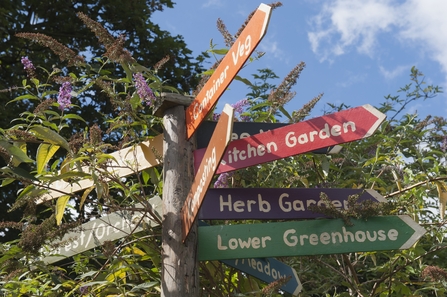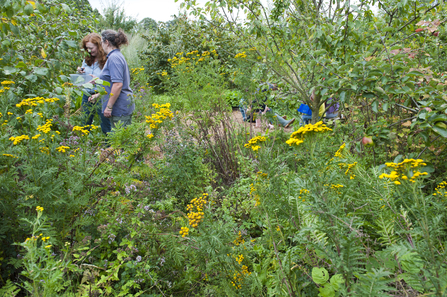Nature in your neighbourhood
The Lincolnshire Wildlife Trust is dedicated to supporting communities to help nature thrive in their local areas. When was the last time you spotted a live hedgehog or a common frog? These are just a two of the species facing decline, and they are at the heart of our conservation efforts. By working alongside local communities, we transform once-neglected spaces into thriving wildlife havens, benefiting both nature and people alike. Together, we can help nature flourish where we live and work.
Whether you are an existing community group, would like to set up a community group or you’re a local business with an area of land that could be managed for wildlife – we’d like to help.
We provide advice on managing existing community-managed green spaces, setting up new groups, workshops on practical skills and wildlife identification, and more.
Feel inspired to make a difference? Then please get involved.

© Paul Harris/2020VISION
Resources
Whether there’s a dull, barren patch of land around your home or workplace that could be colourful and buzzing again, a space in your community that could be a wild but safe area to visit or play in, or you'd like to enhance your own land - whatever its size - with a mini meadow, wildlife pond, or features such as bug hotels or nestboxes, the steps you take can make a big difference.
You can find a wealth of information, handy practical tips and videos on our website for projects of any scale - individual, family, company or neighbourhood. Please explore the links below.
Lincolnshire Wildlife Trust Action pages on how to create and manage habitats in gardens and green spaces from planting hedges to creating bog gardens. These are great for ideas you can get on with right away, whatever the space you have and however many helping hands are ready to get mucky! Here are just a few examples:
Take a wander through our Wildflower Meadow Hub to find a wealth of resources for meadow creation and management, from ID guides and technical notes to a handy calendar. Plantlife's Managing Grassland pages are also packed with useful information.
For advice on setting up and maintaining a flourishing pond of any size, try Froglife's FAQs and the British Dragonfly Society's Garden and Habitat Management guides
If you're interested in attracting specific species with the provision of boxes and the right plants or habitat, take a look at the detailed information on barn owl boxes and habitat requirements, plus tawny owl and little owl boxes, from the Barn Owl Trust, visit Swift Conservation for all things swift related, and find advice on bat boxes and gardening for bats from the Bat Conservation Trust.
For more ideas and information, visit The Wildlife Trusts Community Hub. It's packed with help for communities and individuals, including as video, supporting you to start a group, find funding, take over green space, and more! You can also share your own story and find inspiration from others.

Paul Harris/2020VISION
The Nextdoor Nature project
Nextdoor Nature ran from 2022-2024 but its legacy lives on and will continue to bring communities together to help nature flourish where they live and work. The project was made possible thanks to £5 million funding from The National Lottery Heritage Fund, which provided people with the advice and support they needed to help nature on their doorstep, and it has left a lasting natural legacy to mark The Queen’s Platinum Jubilee.
Thousands of groups across the UK have been supported by Nextdoor Nature, and hundreds more are continuing the work in Wildlife Trusts up and down the country.
Here in Lincolnshire, we were able to support communities in Boston, Cleethorpes, Gainsborough, Grimsby, Mablethorpe, Skegness and South Holland with the aim of creating 'wild' space on their doorsteps to benefit both residents and nature. While the funded project has now concluded, our Nextdoor Nature team continues to work with groups across the county, some established and others just starting out. If you are involved with setting up or running a community project in Lincolnshire to make or improve space for nature and people, and think we might be able to help, please get in touch to tell us how!







